
How Money Laundering is Affecting Tax Collection
Denis Kugonza Kateba, the Commissioner of Tax Investigation in URA, explained how money laundering is affecting the tax collection business. Below are the excerpts from the interview:
What is Money laundering and how is it related to URA business?
Money laundering is the process of disguising illegally obtained funds to make them legitimate. Criminal activities such as theft, corruption, trade in narcotic drugs, illegal wildlife trade, cyber-crime, and tax evasion among others can generate substantial proceeds which are subsequently laundered into the economy.
The money laundering process includes Placement, where dirty money obtained from criminal activities is introduced into the financial systems, layering; where a series of complex financial transactions are created to further separate the funds from their criminal source and Integration; where funds are invested into legitimate business within the economy.
In Uganda, tax evasion is a criminalized activity whose proceeds can be laundered. Tax evasion affects government revenue collections, undermines legitimate business through unfair competition and proceeds can be used to further other criminal activities including financing of terrorism. URA therefore has a mandate to curb tax evasion and money laundering through the prevention, investigation, and prosecution of perpetrators of these crimes.
How deadly is the vice when you compare it to other African countries?
Whereas there are no reports on the actual impact of Money Laundering, the African continent is estimated to be losing $50 billion annually,65% of which is lost through commercial transactions that have a direct impact on revenue collection. The Organization for Economic Co-operation and Development (OECD) reports indicate that Sub-Saharan countries mobilize less than 17% of the Gross Domestic Product (GDP) in tax revenues below 20% considered necessary by the UN to achieve Millennium Development Goals (MDGs).
The average Money Laundering risks in Sub-Saharan Africa remained higher than the global average according to the Independent assessment conducted by the Basel Institute through the Basel AML Index published by the Basel Institute of Governance. Nearly two-thirds of jurisdictions in Sub-Saharan Africa fell into the high-risk category when it comes to Money laundering with Uganda having a risk rating of 6.83 much higher than countries like Ethiopia, Zimbabwe, Botswana, Ghana, and Namibia that registered lower risk ratings.
Uganda remains a major transit route for proceeds of money laundering from mineral-rich neighboring countries such as DRC & South Sudan because of the porous borders and lack of effective money laundering frameworks to combat illicit financial flows in those countries. In its assessment, the Financial Action Task Force (FATF) noted that Uganda exhibited several institutional loopholes coupled with a weak legal regime and was placed on the financial grey list in 2020. However recent assessments in 2023 indicate that the country has made significant progress and could be removed from the financial grey in 2024.
What is URA doing to curb the vice?
Uganda Revenue Authority has made significant progress in the fight against tax evasion and money laundering including;
- Enhancement of customs performance through initiatives such as; the Electronic Cargo Tracking, Single Customs Territory, Document Processing Centre, and one-stop border posts to facilitate international trade and curb trade-based money laundering.
- Facilitation of cross-border declaration of currency and negotiable bearer instruments at border points through forms D&C to financial intelligence and statistics in fighting Illicit Financial Flows.
- Uganda has been a signatory to the Convention on Mutual Administrative Assistance since 2016, enabling the Competent Authority (CG) to send and request for information through the Exchange of Information platform (EOI). This information facilitates audits and investigations and helps in combatting abusive transfer pricing, tax avoidance, base erosion, and profit shifting.
- URA has established a specialized Anti Money Laundering Investigation unit under the Tax Investigations Department with competent, qualified, and equipped personnel to investigate and prosecute tax evasion and money laundering-related cases to curb illicit financial flows.
- URA has signed a Memorandum of Understanding with government agencies such as the Financial Intelligence Authority, and National Identification Authority for the exchange of information and works closely with the Uganda Police, and Office of the Director of Public Prosecutions to investigate and prosecute tax evasion and money laundering related cases.
- URA put in place incentives to encourage whistleblowing and witness protection regulations to curb tax evasion.
What are the dangers of money laundering to tax business?
- Tax revenue Leakage Money laundering especially trade-based deprives the tax body of revenue collection and the value and the volume of international transactions are either under or over-estimated depending on what the criminal wants to achieve.
- Laundered criminal proceeds can be used by criminals to out-compete legitimate business activity leading to the collapse of business, loss of revenue, and employment for the citizens.
- Money laundering can result in financial sanctions on the country including black and grey listing by international organizations such as Financial Action Task Force (FATF). This results in increased cost of doing international business, reduced appetite for investors, and tax revenue collection.
- Tax evasion & Money Laundering involve complex schemes that require tools, systems, and dedicated and qualified personnel to conduct investigations and prosecution which increase the overall tax compliance costs.
- Trade-based Money laundering distorts economic trade data and statistics, making planning and decision-making revenue collection difficult.
What successful prosecutions has URA had in relation to the same?
As a result of an investigation by the Anti-Money Laundering Unit of Uganda Revenue Authority, several cases are currently being handled together with our Legal Department on tax evasion and money laundering. Once they are ready, the culprits will be penalized.
What is Your message of caution to the public?
URA has intensified efforts to curb tax evasion and money laundering including deterrence and investigation. Anyone found culpable of tax evasion is prosecuted for money laundering under section 116 of the Anti-Money Laundering Act 2013. The organization has put in place measures to detect and deter trade mis-invoicing, smuggling, phantom shipments, and dumping.
We, therefore, appeal to the public to desist from any acts of tax evasion and money laundering, report the culprits, and support the organisation to collect revenue for national development.
Source: Thetaxman.ura.go.ug
Links
- 126 views








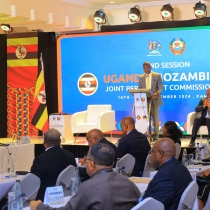

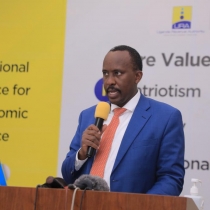
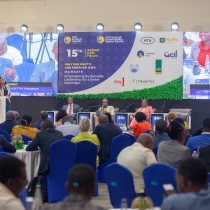
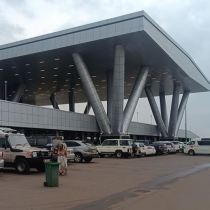
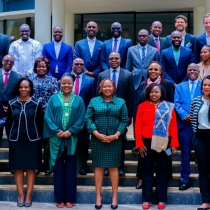


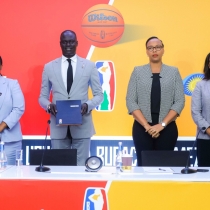













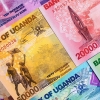

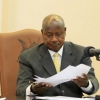






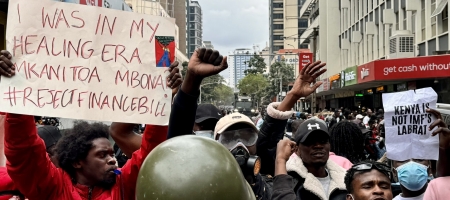




Join the conversation